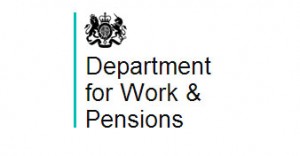Hugo
The Work Programme was introduced in 2011, to consolidate various courses aimed at finding jobs for ‘hard-to-reach’ groups of long-term unemployed people such as lone parents. It is accompanied by the Work Choice programme, which specifically targets disabled people.
The Committee praises the Department for Work and Pensions (DWP) for ‘implementing a programme which, in general, produces results at least as good as before for a greatly reduced cost per participant’.
However, it claims that ‘nearly 70% of participants’ are completing the Work Programme without finding sustained employment. It adds that the Work Programme ‘is not working well for people with more complex or multiple barriers to employment’.
It recommends that the DWP should integrate with local services and charities better and focus more on innovation. The DWP also needs to standardise ‘characteristic-based’ assessments of participants requirements of and achievements on the course, and focus on people with more ‘complex needs’, the report adds.
‘Scandalous’
The Work Programme has faced far more stern criticism from Martin Bright, the founder of youth employment charity The Creative Society, who now works for the New Statesman. He claims the ‘scandalous’ programme ‘institutionalises bullying’, favouring big companies over charities that successfully work with young people.
Bright points to benefit sanctions, which were almost unmentioned by the WPC’s report, as one of the reasons for the programme’s failure. He uses the example of one young person, Dominic, stating ‘much of Dominic’s time on the Work Programme was spent avoiding sanctions’. He claims that Dominic had to participate in unsupervised job searches to avoid sanctions, which compromised the majority of his experience on the programme.
However severe the flaws of the Work Programme, it is clear that it has improved significantly since 2011, with the percentage of young people finding jobs more than doubling over this period. The programme is also no worse than its predecessors, and is delivered at a much reduced cost
Nonetheless, with nearly 75% of the young people on Jobseeker’s Allowance failing to find long-term employment through the programme, it has a mountain to climb.
Similar Articles:
Youth Ambassador Jack Rounds Up The Week At The Conservative Annual Conference
Youth Ambassador Laurence – 21st Century Life For Young People The Challenge We Face Today










